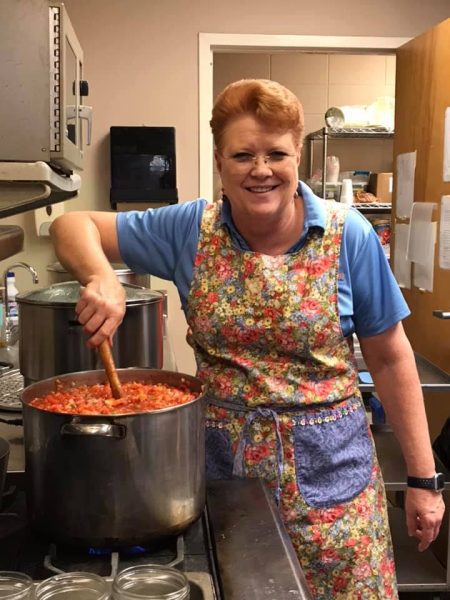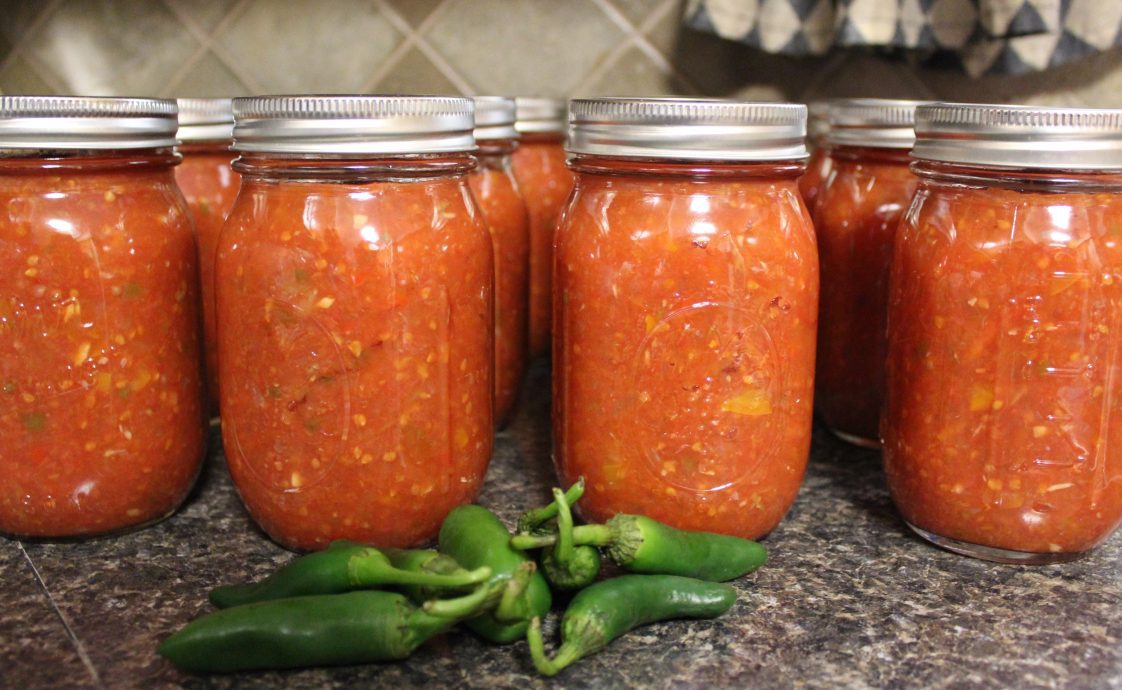Alabama Cottage Food Law

Preserved fruits and vegetables may be allowed under Alabama’s Cottage Food Law if they have a finished equilibrium pH below 4.2. Examples include but are not limited to pickled vegetables, salsas, jams, and jellies.
Many of these products will require pH testing to ensure safety. An approved laboratory must conduct initial testing. After the initial test and approval, periodic testing is recommended to ensure consistency. Examples of products that may be exempt from testing requirements include traditional fruit jams and jellies.
Preparation and Processing

- Prepare the product according to a validated recipe.
- Fill the water bath canner a little over half full of water and let it heat up.
- Wash the jars, rings, and lids.
- If the processing time for the product is less than 10 minutes, sterilize the jars by placing them in a water bath canner right side up. Fill the canner and jars until there is at least an inch of water above the rim of the jars. Bring to a boil and boil for 10 minutes.
- Sterilization of the jars is optional if the product will be processed for at least 10 minutes.
- Prepare the jar lids according to the manufacturer’s recommendations.
- Fill each jar with the product. Make sure to leave the correct headspace and remove air bubbles.
- Wipe the rim of each jar with a moist paper towel to clean. Place the flat lid on the jar and then screw the ring on until it is fingertip tight.
- Place the jars on a rack in the canner. The water should be 1 to 2 inches above the tops of the jars. If it is not, carefully add hot water to the canner. Be careful not to pour the water directly on top of the jars.
- Allow the water in the canner to come to a rolling boil.
- Once the water comes to a boil, begin counting the time for processing.
- When the processing time is up, remove the jars. Do not tilt jars to remove water collected on the lid.
- Place the jars on a stable, insulated surface (like a wooden surface or several kitchen towels) to prevent them from breaking. Do not place hot jars on a cold surface.
- Allow the jars to cool for 12 to 24 hours, then check the seals to ensure all jars are sealed.
- Unsealed jars must be reprocessed within 24 hours. When reprocessing, remember to use a new flat lid.
Important Things to Remember
- Always use validated recipes.
- Do not alter the recipes—proportions are very important.
- Meat, poultry (egg), and fish products are not allowed.
- Use standard canning jars.
- Acidified products must be processed in a water bath canner for the time specified in the validated recipe to destroy vegetative bacteria, yeasts, and molds.
- Achieving and maintaining the correct acidity is critical for safety.
 Dani Reams, Regional Extension Agent, Food Safety and Quality, Auburn University
Dani Reams, Regional Extension Agent, Food Safety and Quality, Auburn University
New May 2023, Alabama Cottage Food Law: Acid and Acidified Products, ANR-3001

